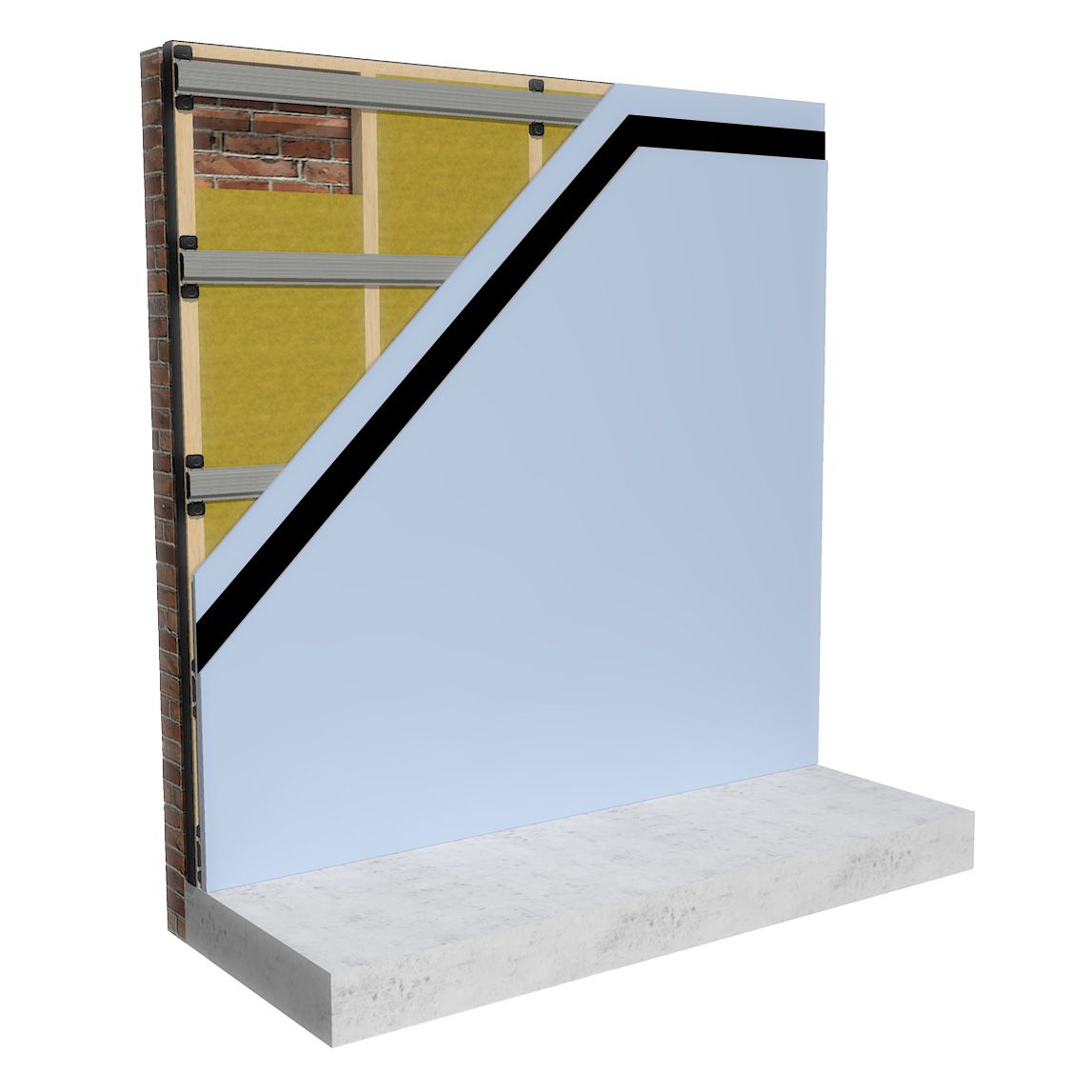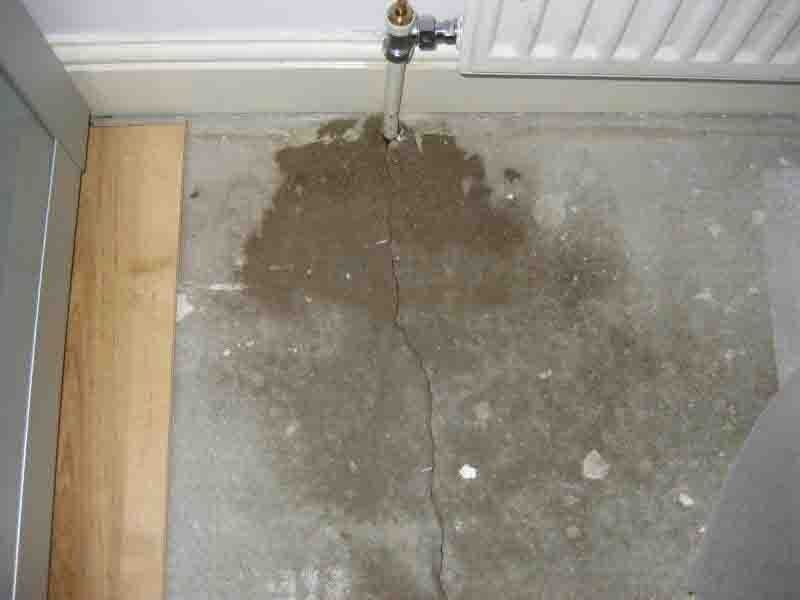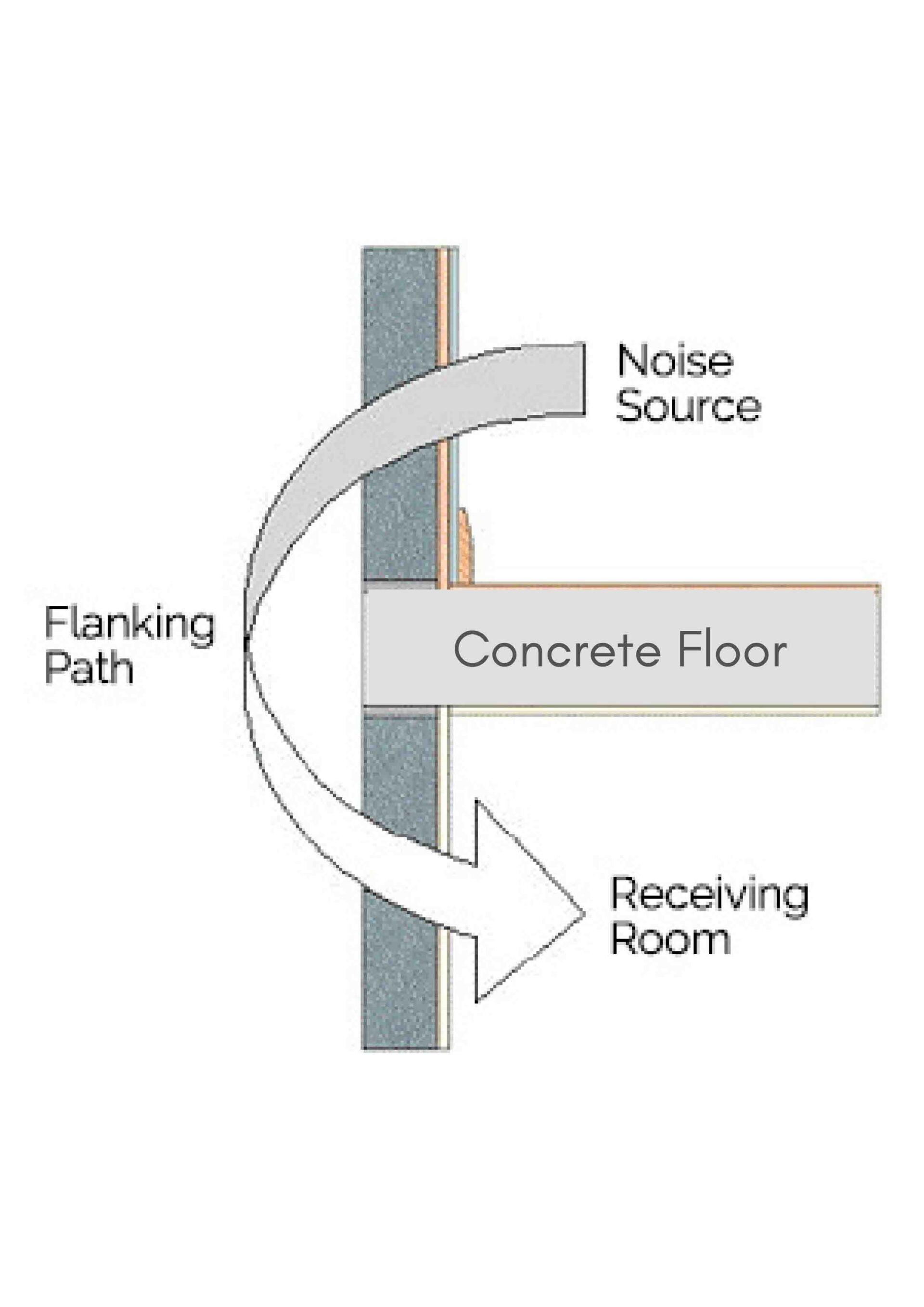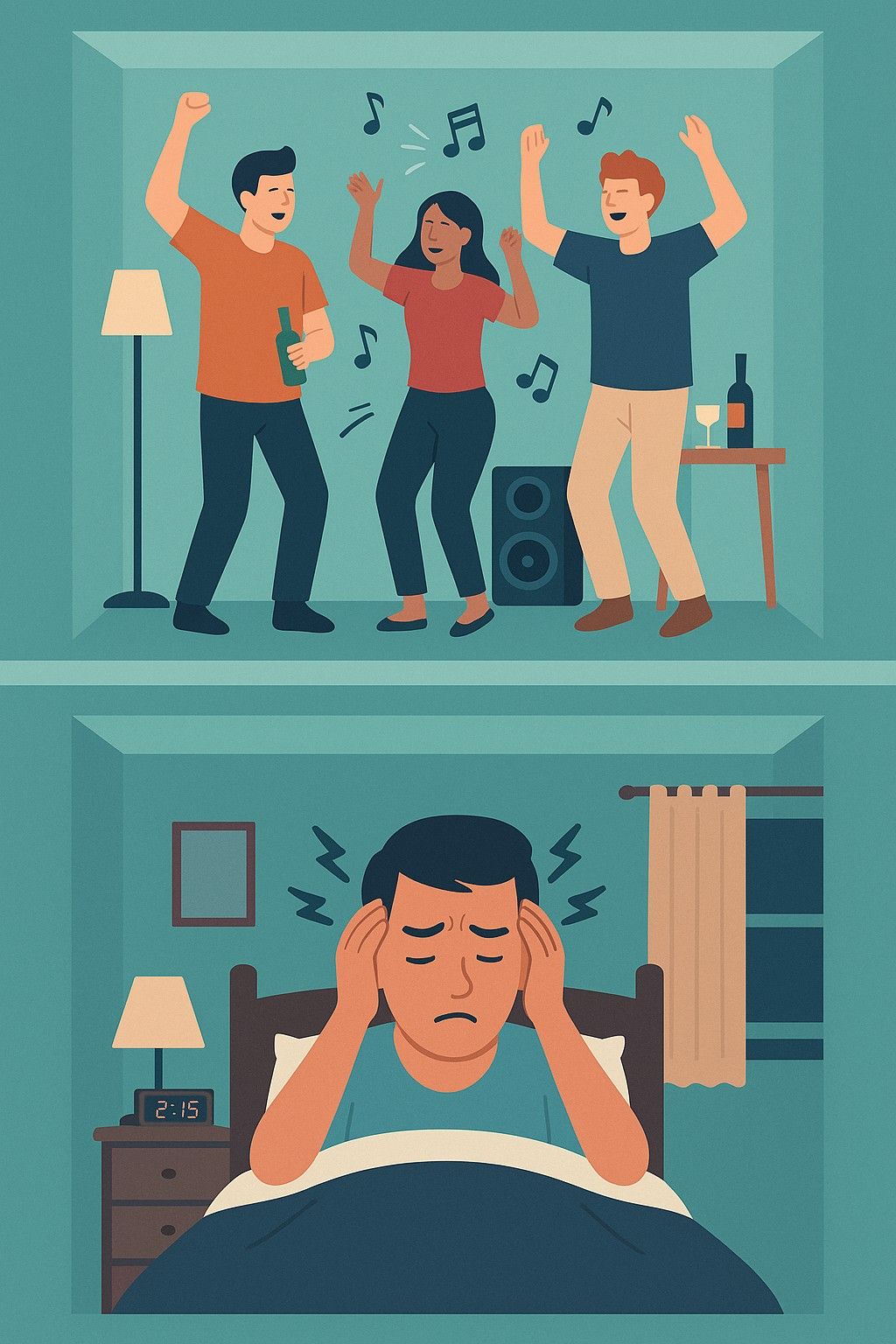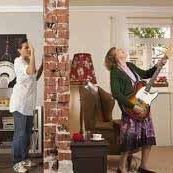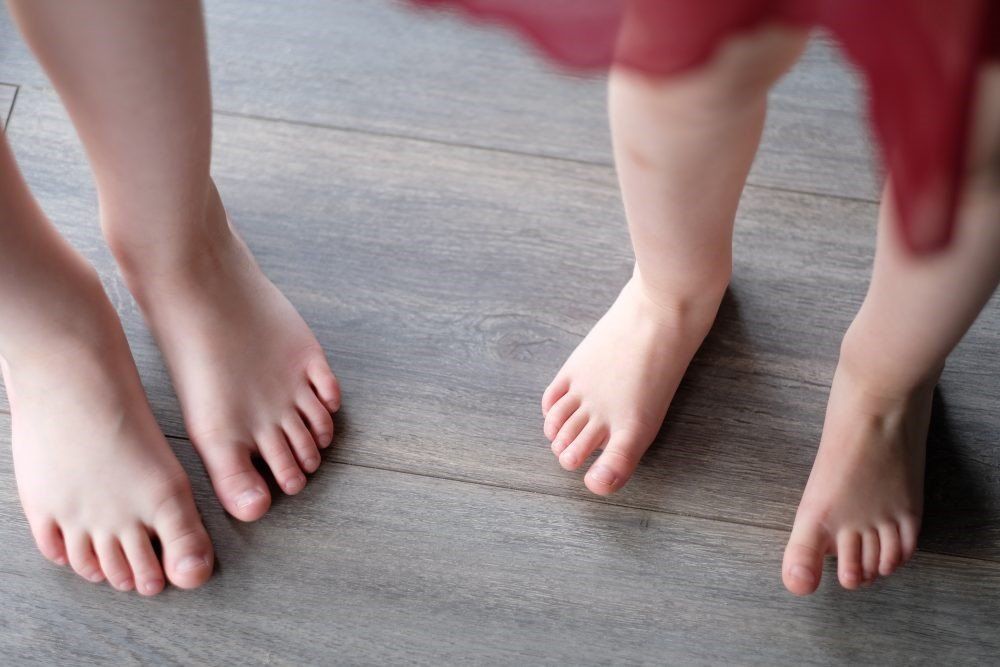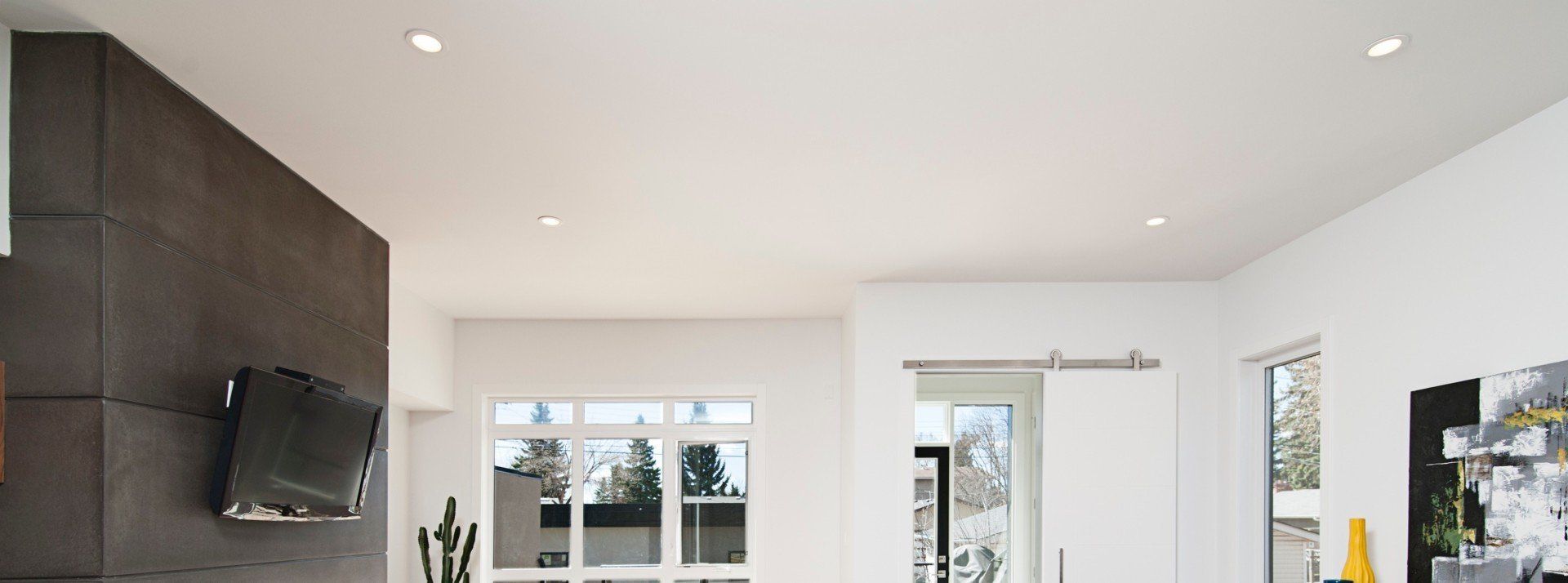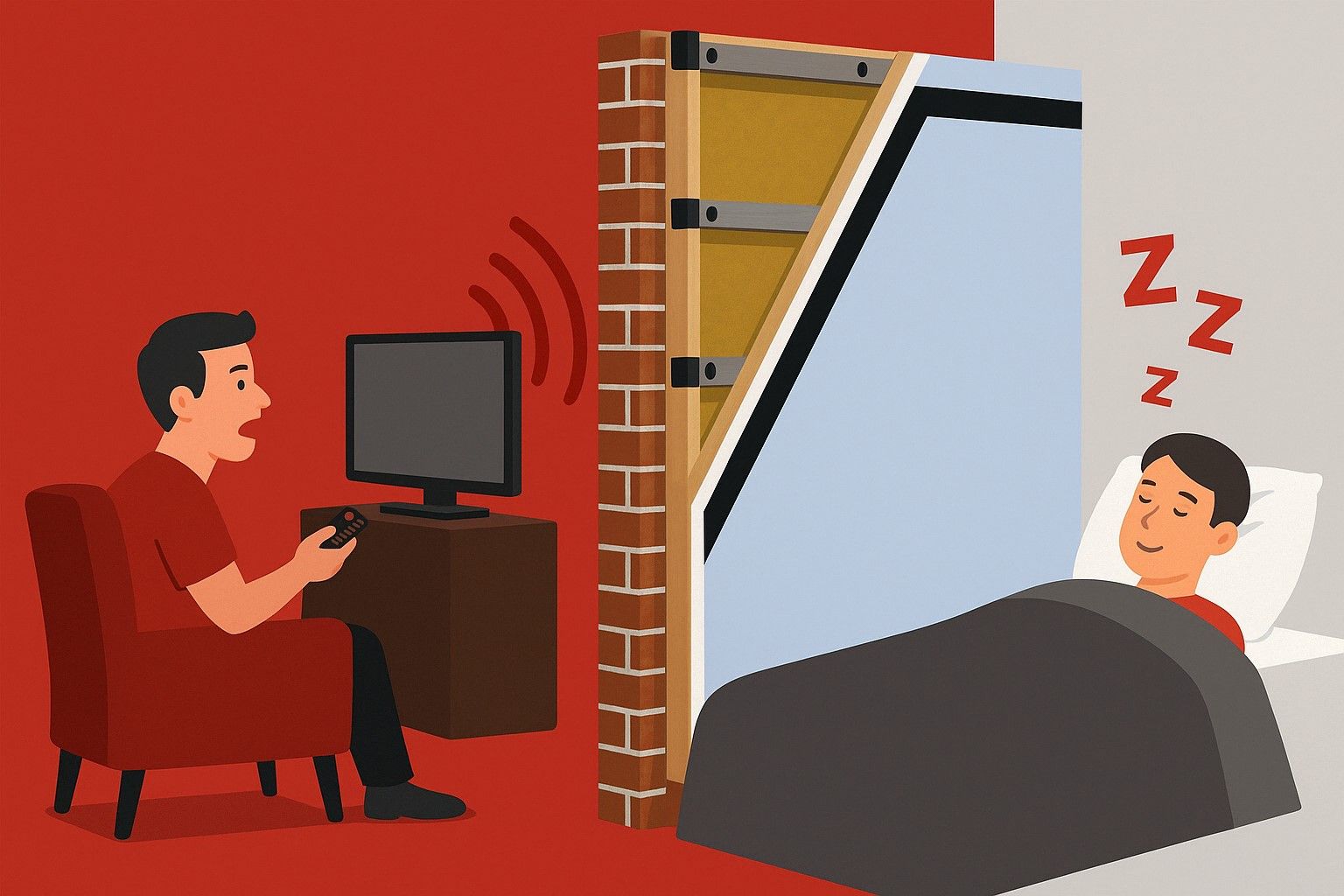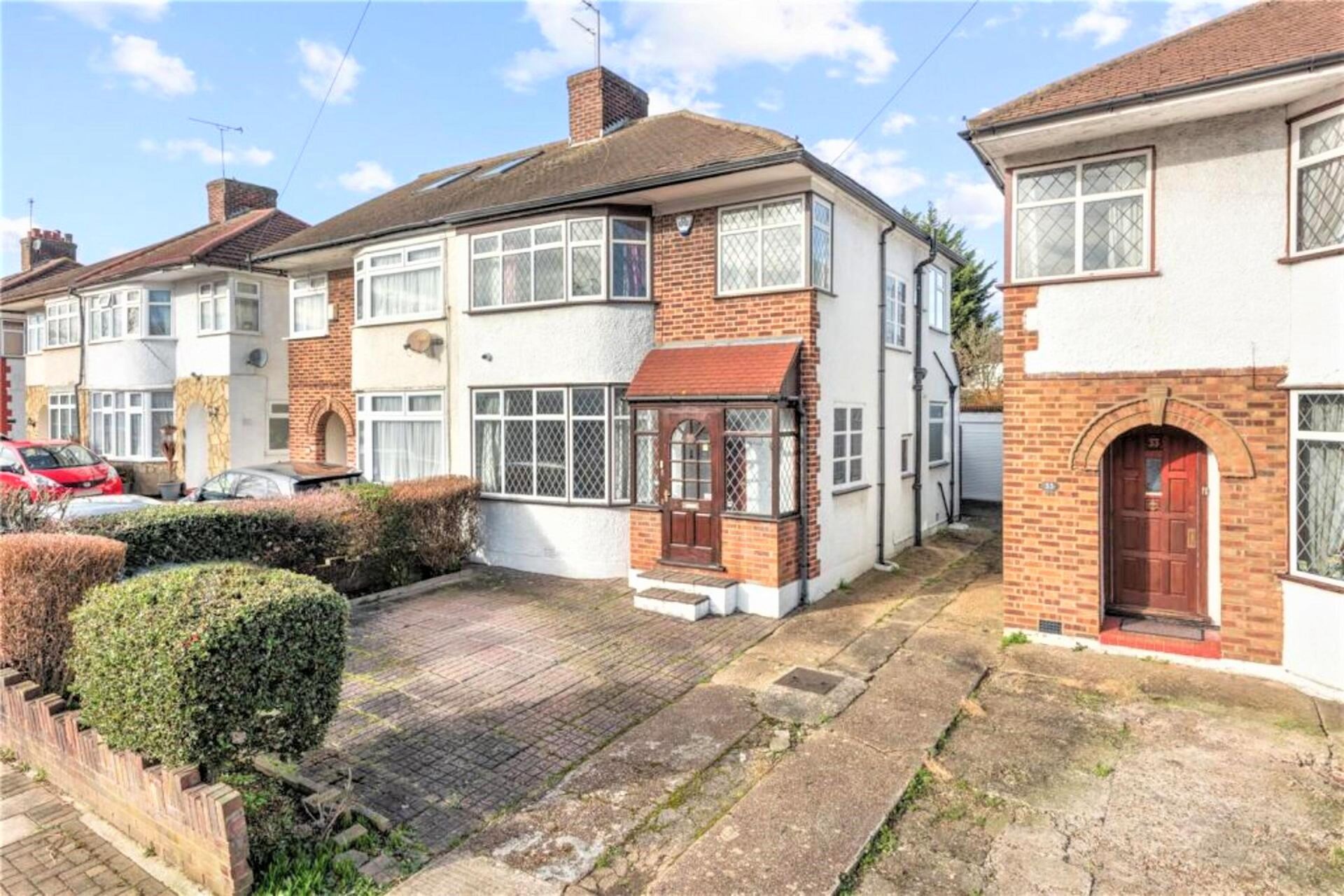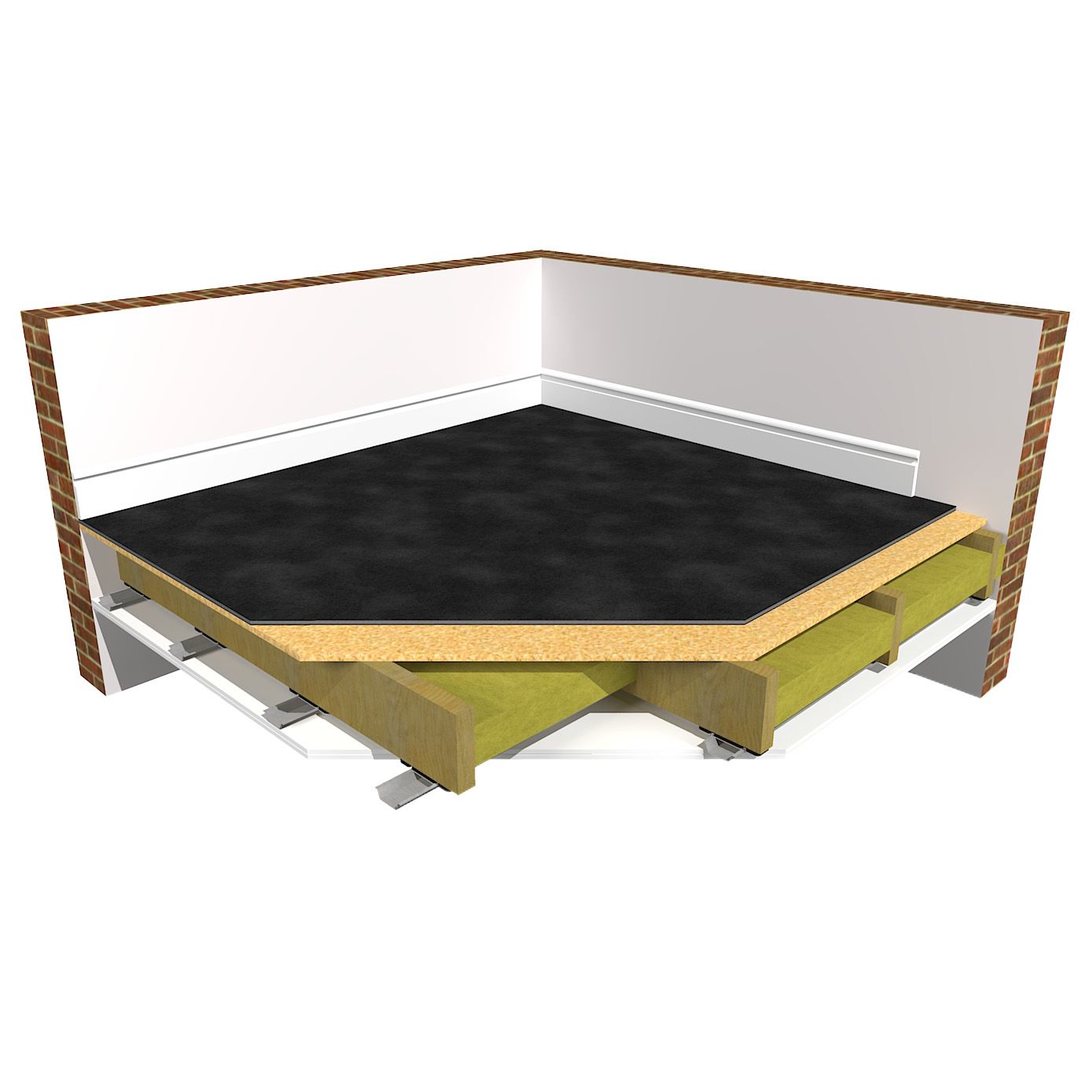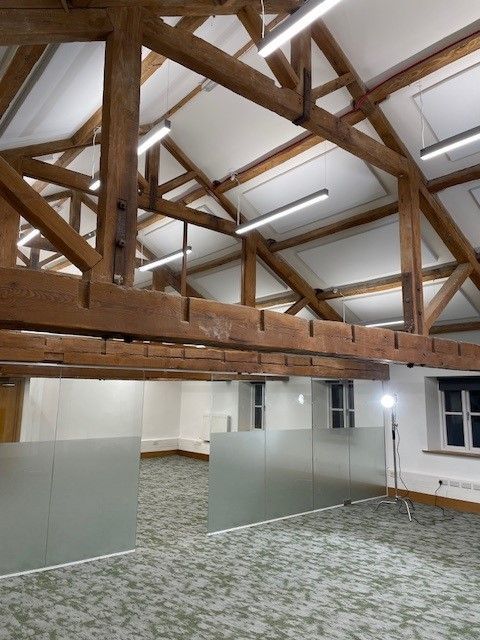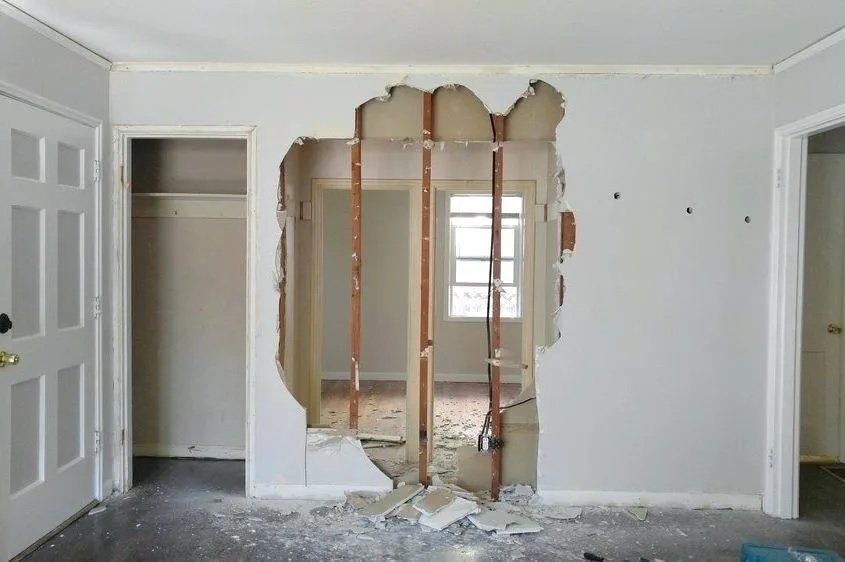How to soundproof a concrete floor
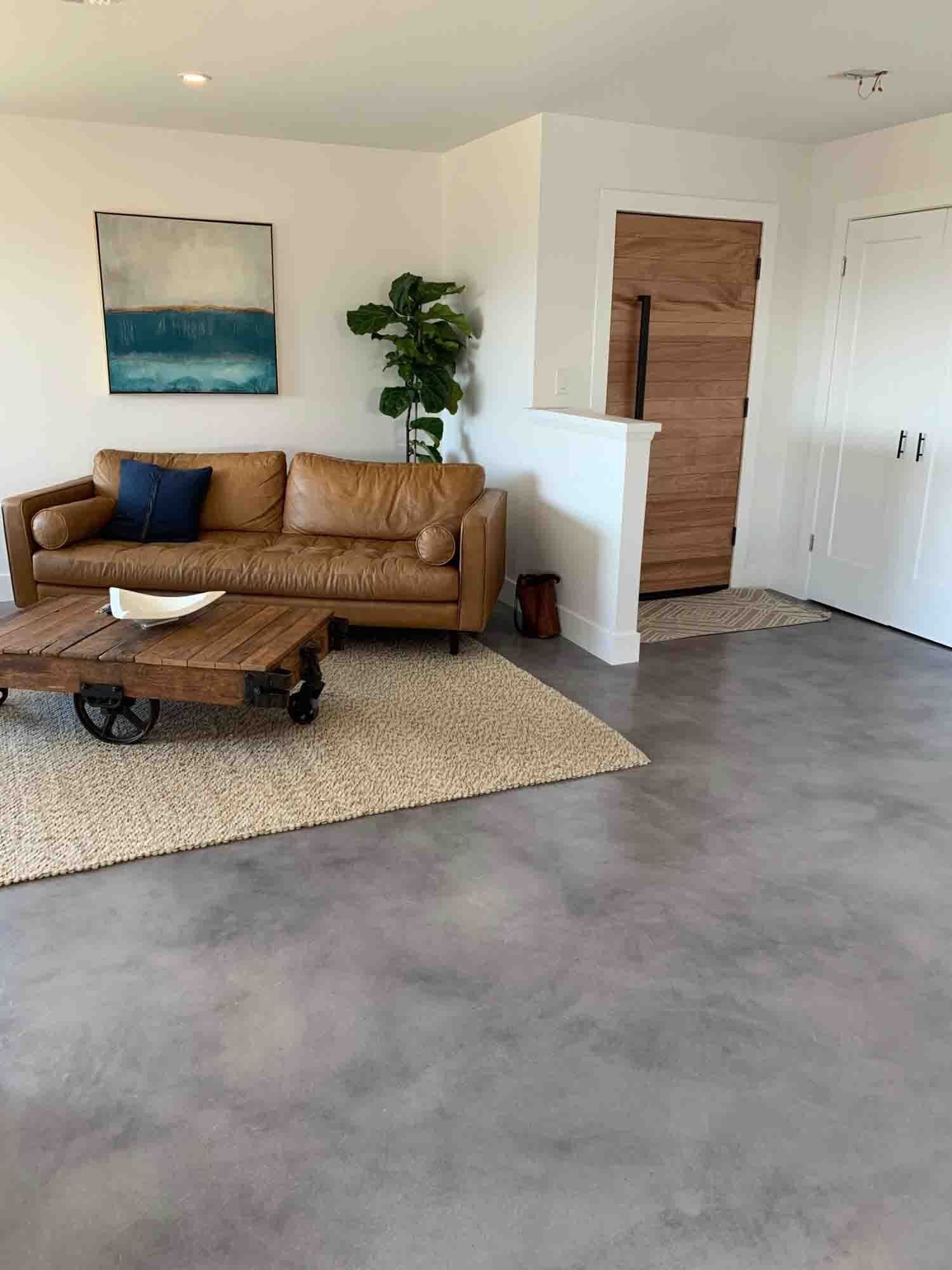
Concrete floors and unwanted noise
Concrete floors naturally contain much more mass than timber floors and are therefore (usually) good at blocking airborne noise. TV and conversation noise ordinarily does not transfer between the floors of buildings with concrete floors. The usual issue with unwanted noise and concrete floors is impact noise, the likes of footfall and movement of furniture. If you've even been on holiday and stayed in an apartment with concrete floors and no carpet, every time the person staying above drags their chair to sit down, the sound can be heard in your apartment below.
Airborne noise and concrete floors
So, what if the noise being heard is indeed airborne noise? We've already highlighted that concrete floors usually perform well at blocking the transference of airborne noise, however there can be exceptions.The 3 main reasons why airborne noise can be heard through a concrete floor are highlighted below.
3 reasons why airborne noise can be heard through a concrete floor:
1. Weak points within the concrete that airborne sound is passing through. e.g radiator pipes, or cracks within the concrete itself
2. Flanking noise
transferring into other parts of the building, e.g. travelling down the wall. Flanking can occur when there is direct connection between the surface of the wall and the floor. This is often the case with concrete and steel structures and can be common in purpose built blocks of flats where there are lots of adjoining structures within a single building
3. Poor performing concrete structure. It could be that the concrete itself isn't a solid 200mm, but is a hollow concrete slab. e.g. hollowcore, which is often used in the construction of flats. Because of the large holes and air gaps, (which create a weakness for airborne noise to pass through), the concrete floor needs to be treated in the same way as a timber floor. Therefore a combination of high mass materials need adding to the existing concrete floor.
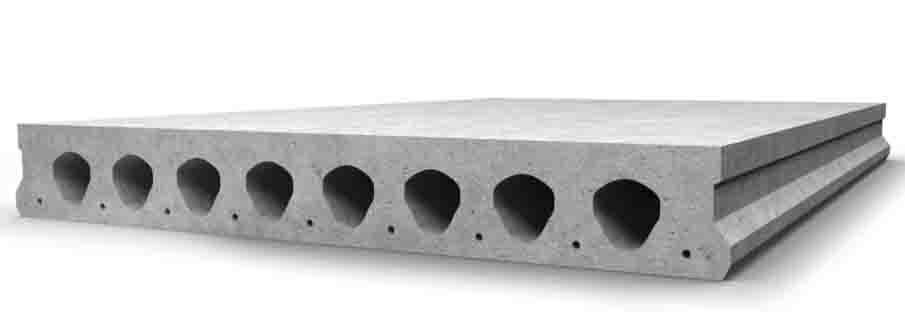
How to check if a concrete floor needs soundproofing?
If you can hear airborne noise through a concrete floor, the likelihood is that it's due to one or more of the above reasons. You might be thinking, how do I know if it's because of a weak point, flanking noise, or the poor structural performance of my concrete floor?
The easiest way to narrow down why airborne noise can be heard through a concrete floor is to do a simple ear test. When you can hear the noise, put your ear to any gaps or holes, e.g. where there might be radiator pipes and listen to hear how loud the noise is. Put your ear to another part of the floor and compare how loud the noise is in different areas of the floor.
To check for flanking noise, when you can hear the airborne noise, put your ear to the walls, listen again and compare.
It is difficult to know if the reason for hearing airborne noise is because of the concrete structure itself. In most cases you won't be digging up your concrete floor to check if hollowcore has been used. Access to builders and architect plans may help to answer this question. However, (by again) doing a simple ear test to the floor and moving to different positions across the floor will help ascertain if it is the structure itself. If you can hear airborne noise when doing an ear test to the floor in multiple positions then the likelihood is that it could be due to the poor performance of the concrete floor itself.
How to soundproof a concrete floor against airborne noise
If airborne noise can be heard through a concrete floor, then it is important to treat it as if it were a timber floor. Therefore, to soundproof a concrete floor effectively against airborne noise, it is important to add more mass to the floor. This is achieved by adding a combination of high mass / density products to the existing concrete floor. The Soundproofing Store's acoustic underlays feature this combination of high density products within their flooring solutions. The top performing floor soundproofing solutions for airborne noise are listed below.
How to soundproof a concrete floor against impact noise
We have so far focused on how to soundproof a concrete floor against airborne noise. To soundproof a concrete floor against impact noise, then it is important to use high impact absorption foam. A combination of different types and thicknesses of soundproofing foam perform better for different levels of impact noise.
A resilient layer is added over the concrete and below the final floor finish. The correct concrete floor soundproofing solution depends on factors such as the floor height and what the final floor finish will be. The highest performing floor insulation products for concrete floors for both impact and airborne noise can be found below.
Soundproofing solutions for concrete floors
How to soundproof a concrete floor against airborne noise - Summary
Concrete floors don't always perform as well at blocking unwanted airborne noise as they should. Occasionally unwanted airborne noise can travel down to the room below. Highlighted in this article are the three main reasons as to why this can happen, along with the best floor soundproofing solutions for both airborne and impact noise on a concrete floor.
If a concrete floor is poor at blocking airborne noise, then treat is like a timber floor and add more mass of high density products to the existing concrete floor before laying the final floor finish.
Share
"We don’t expect you to become an overnight expert in soundproofing, that’s what we’re here for."
